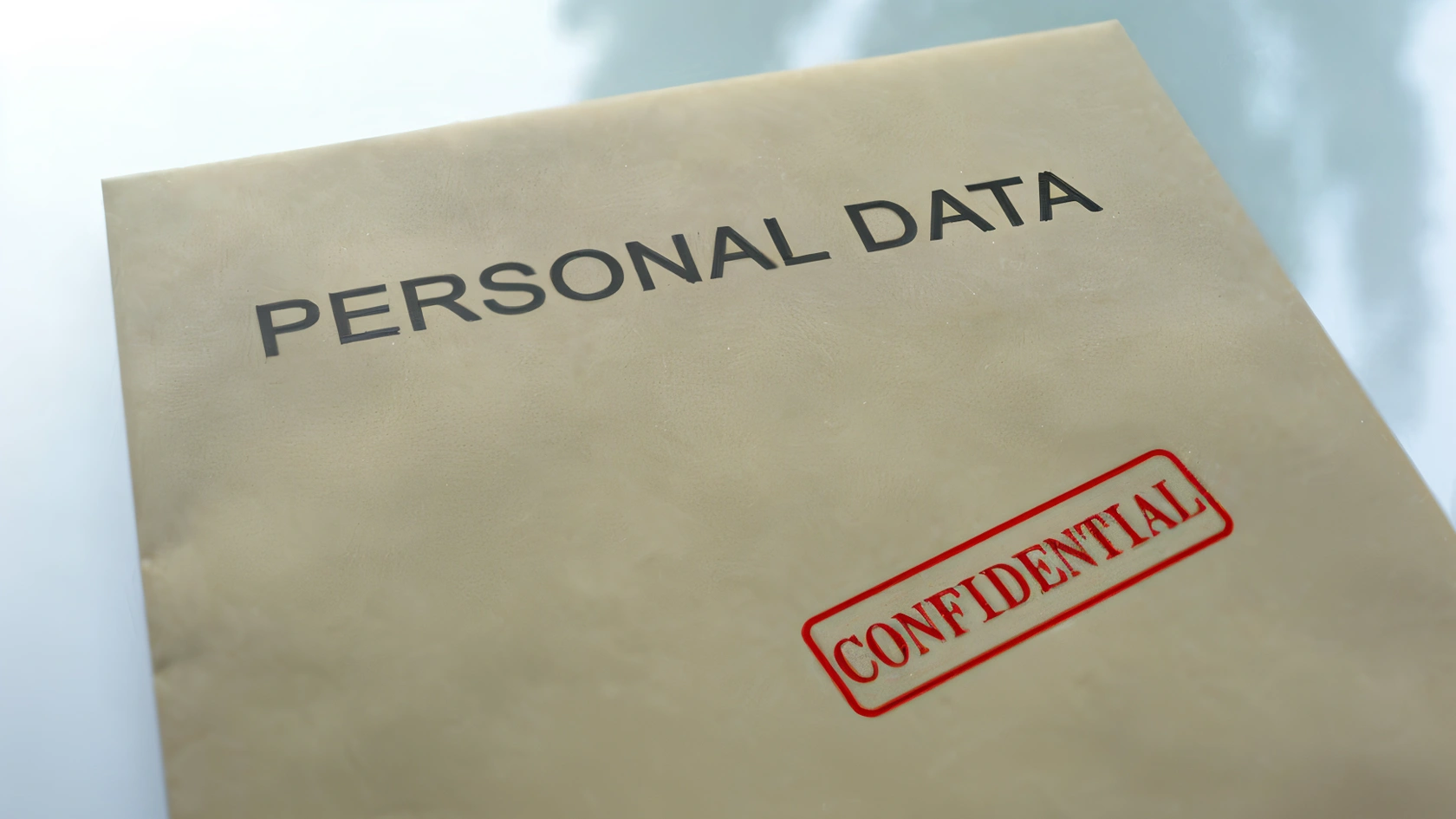
Therapist Confidentiality: What It Is, When Therapists Have to Break Confidentiality, and How They Protect Your Privacy
Discover how therapist confidentiality works in psychotherapy, what it means in professional practice, and how therapists protect client privacy and trust.

What really happens when you open up to a psychotherapist during a therapy session? It’s natural to have concerns about confidentiality in therapy and whether your personal health information will stay private. Therapist confidentiality is what makes it possible to build trust and feel safe sharing openly.
Confidential therapy is built on honesty, trust, and respect for your privacy. From the very first session, therapists explain what confidentiality means and how your information will be handled. This helps you feel secure knowing your personal information is protected within the therapeutic relationship.
Therapist-patient confidentiality is guided by ethical standards, laws, and professional codes that keep your information private. These protections give you the confidence to explore personal health concerns without fear of exposure and judgment. Keep reading to learn how confidentiality in therapy works, why it is central to effective mental health care, and the reasons when confidentiality needs to be broken.
Understanding Therapist Confidentiality and Why It Matters

Client confidentiality is at the heart of every therapeutic relationship. When you tell a therapist something personal or share identifying information in a therapy session, it becomes confidential information that is protected by both ethical standards and privacy policies. This protection helps you feel safe enough to be open and focus on your mental health.
What Is Confidentiality in Therapy?
Therapist-patient confidentiality means your personal health information stays private and won’t be disclosed without consent, unless the limits to confidentiality apply. Therapists are required by law and guided by ethical codes, such as those set by the Canadian Psychological Association (CPA), as well as privacy legislation, including the Personal Information Protection and Electronic Documents Act (PIPEDA), and provincial health privacy laws.
- Keeps your client information private and secure
- Therapists explain to clients the limits to confidentiality from the first session
- Follows laws and regulations such as provincial law, territorial rules, and the Health Professions Act
- Builds trust and strengthens the client-therapist confidentiality that therapy depends on
Why Confidentiality Matters
Confidential therapy gives you the confidence to share openly, knowing your therapist is legally and ethically committed to protecting your privacy. At the same time, therapists also help clients understand situations when confidentiality can be broken—like if someone has been abused as a child, there’s serious harm, or there’s a danger to themselves or others. Even in those cases, therapists are trained to inform the client and explain what’s happening.
- Encourages you to tell a therapist what’s really going on
- Clarifies when therapists are required to report by law
- Reinforces professional codes of ethics and privacy policies
- Builds trust so the therapeutic relationship feels safe and supportive
When Does a Therapist Have to Break Confidentiality

Confidentiality in therapy is meant to protect your privacy, but there are situations where confidentiality can be broken. A therapist may be legally required to share information in order to keep people safe or to follow specific laws. Regulated health professionals usually explain these limits during the first session so clients feel clear and informed regarding confidentiality.
Risk of Harm
A therapist can break confidentiality if there’s a serious risk that a client may harm another person or themselves.
- Preventing suicide or severe self-harm
- Protecting others from threats of violence
Child Abuse
Therapists have a legal duty to report suspected child abuse or neglect.
- Includes physical, emotional, or sexual abuse
- Covers unsafe environments or neglect that puts a child at risk
Elder or Vulnerable Adult Abuse
Like with children, therapists are also legally required to report abuse or neglect involving vulnerable adults.
- Elder abuse in care facilities or private homes
- Neglect that threatens health, safety, or dignity
Duty to Warn
When there is a clear and immediate danger to another person, therapists have a “duty to warn.”
- Informing the potential victim directly
- Contacting the proper authorities to prevent harm
Legal Proceeding
Confidentiality can be broken if a therapist is ordered by a court during a legal proceeding.
- Complying with subpoenas or court orders
- Providing limited testimony when under legal duty
Criminal Investigation
Therapists may be legally required to share information as part of a criminal investigation.
- Disclosing specific concerns requested by law
- Only sharing what is legally required
Insurance and Employment Programs
In some cases, confidential information may be shared with health care providers or employee assistance programs.
- Necessary for billing or reimbursement of services
- Does not include full therapy session notes
Professional Supervision or Consultation
Therapists may share limited details with other regulated health professionals for supervision or training.
- Identifying information is minimized or removed
- Helps ensure high-quality therapeutic care
Client’s Consent
Confidentiality can also be broken if a client gives clear written consent.
- Sharing information with other health care providers
- Often used for coordinated treatment or support
How Do Therapists Protect Your Privacy in Therapy?

Therapists take privacy very seriously because it’s the foundation of a safe and trusting therapeutic relationship. Clients need to feel confident that what they share in therapy sessions stays confidential unless there’s a specific legal or ethical reason to disclose it. By following professional guidelines, legal standards, and ethical codes, therapists create a safe environment where clients can discuss their concerns openly and without worry.
Clear Privacy Policies
From the first session, therapists present privacy policies and explain how client information is handled. This includes what counts as personal health information, the limits to confidentiality, and when a therapist may have to break confidentiality.
Secure Handling of Records
Therapists ensure that records and personal information are stored securely. Only regulated health professionals have access to these records, protecting them from unauthorized use or disclosure.
Following Ethical and Legal Standards
Therapists follow ethical codes, professional standards, and legal obligations—like the duty to report child abuse or serious harm. This means any sharing of sensitive information is handled responsibly, and clients are always informed when it occurs.
Maintaining Professional Boundaries
Protecting privacy also means maintaining and respecting professional boundaries. By avoiding dual relationships and keeping therapy focused on the client’s needs, therapists ensure that personal information is respected and the therapeutic relationship stays safe.
Transparency and Trust
Therapists are open about their privacy practices, which helps clients feel secure in sharing personal or sensitive information. This transparency strengthens trust and allows the relationship to be effective and meaningful.
Ethical Standards and the Role of Health Professionals in Confidential Therapy

Ethical standards ensure therapists protect client information and maintain a safe space. Mental health professionals follow strict guidelines to maintain professionalism, respect, and confidentiality in therapy. These regulations help avoid conflicts like dual relationships and help clients understand their rights and responsibilities.
Professional Codes of Ethics
Therapists follow codes established by professional associations and regulatory bodies.
- Define how confidential information should be handled and protected.
- Outline the circumstances under which a therapist may share information, guided by ethical standards.
Legal Duty and Accountability
Therapists have a legal duty to report in specific situations, which aligns with ethical standards.
- Includes child abuse, elder abuse, or if a client may harm another person.
- Clients can seek legal advice to understand these obligations.
Transparency With Clients
From the very first session, therapists explain how confidentiality works.
- Clearly outline limits to confidentiality.
- Ensure clients understand what may happen regarding personal health information.
Boundaries in the Therapeutic Relationship
Ethical standards prevent dual relationships and other conflicts of interest.
- Maintain trust and professionalism.
- Keep therapy separate from personal or outside relationships.
Oversight and Regulation
Regulated health professionals are accountable to professional bodies and, in some cases, the privacy commissioner.
- Ensures therapists follow privacy policies and laws.
- Provides clients with guidance and recourse if concerns about confidentiality arise.
How Can a Therapist-Client Relationship Stay Strong While Protecting Privacy

A strong therapeutic relationship is built on trust, respect, and clear communication about confidentiality. Clients need to feel safe sharing personal thoughts and feelings, knowing their personal health information is protected. Therapists follow ethical standards, legal requirements, and professional guidelines to create a space where clients feel supported and understood.
Clear Communication From the First Session
Right from the first session, therapists clearly explain the limits of confidentiality and what clients can expect when it comes to their privacy. This helps address any worries and makes it clear when a therapist may have to share information, giving clients peace of mind.
Protecting Personal Health Information
Therapists take every step to keep personal health information private and secure. Records are stored safely, and only authorized health professionals have access.
Maintaining Professional Boundaries
Professional boundaries are important to keep the relationship professional and focused on your unique needs. By avoiding dual relationships or conflicts of interest, therapists create a safe environment where therapy can be effective and trustworthy.
Building Trust Over Time
A strong client-therapist relationship thrives on transparency, professionalism, and trust. When clients feel secure, supported, and understood, they’re more likely to share, making therapy smooth and effective.
Handling Sensitive Situations
In situations where confidential details and information have to be shared, therapists only disclose what the law or ethical guidelines require. Clients are always fully advised if any information needs to be shared, helping maintain trust and transparency.
Final Thoughts
Therapist confidentiality is the heart of a healthy and safe therapist-client relationship, making clients feel safe and free to share honestly. Therapists follow ethical standards, legal duties, and professional guidelines to safeguard personal health information while maintaining confidence and trust.
In rare cases, like risk of harm or child abuse, confidentiality may be broken. Still, these limits are explained in the first session. Clear communication, secure records, and professional boundaries help keep your information safe and secure.
Knowing how therapists protect your privacy makes it easier to feel confident and supported. Ultimately, it allows therapy to remain a safe, effective space for growth.
Frequently Asked Questions
When is a psychotherapist legally required to report information shared in psychotherapy?
A psychotherapist is required to report in certain situations to follow the law and keep everyone safe.
Safety concerns: If you might harm yourself or someone else, your therapist may need to alert authorities to prevent danger.
Child or elder abuse: Suspected abuse must be reported to the appropriate agencies to protect vulnerable individuals.
Court orders or legal proceedings: Sometimes, a therapist may have to share information if a court or legal process demands it.
Limited disclosure: Only the information necessary for safety or legal reasons is shared, not your full story.
Protecting everyone: These rules exist to keep both clients and the public safe while still respecting privacy as much as possible.
How does therapist-patient confidentiality work during psychotherapy sessions?
Therapist-patient confidentiality means what you share in therapy stays private.
Private sessions: Everything discussed in psychotherapy is kept confidential.
Professional standards: Psychotherapists follow strict ethical and legal rules to protect your information.
Exceptions explained: Your therapist will clearly explain the rare situations when confidentiality might be broken.
Trust building: Knowing your information is safe helps you open up and get the most out of therapy.
Client control: Your personal information is only shared with your consent, unless the law requires disclosure.
In what situations might a therapist be required to break confidentiality?
Therapists may need to break confidentiality only in specific legal or ethical circumstances.
Risk of harm: If you might hurt yourself or someone else, your therapist can step in to prevent danger.
Abuse reporting: Suspected child or elder abuse must be reported to protect vulnerable people.
Legal obligations: Confidentiality can be broken if required by a court or during a criminal investigation.
Limited and responsible: Therapists only share the minimum necessary information.
Transparency: Your therapist will inform you when information needs to be shared with you.
What should clients know about what a therapist may disclose during psychotherapy?
It’s important to understand what a therapist may disclose to ensure safety and compliance with the law.
Rare exceptions: Sharing happens only in cases where there is a risk of harm or abuse.
Legal Requirements: Therapists must adhere to relevant laws and professional standards.
Supervision and consultation: Sometimes, minimal non-identifying information may be shared with other professionals for insight or guidance.
Consent matters: Therapists cannot share your personal information without your permission, except in cases where it is required by law.
Clear communication: These limits are explained during the first session, so you know what to expect.
How do psychotherapists handle sensitive information while maintaining therapist-patient confidentiality?
Psychotherapists take careful steps to keep your information private and secure.
Secure records: Your personal health data is stored safely and accessed only by authorized professionals.
Professional boundaries: Maintaining clear boundaries prevents conflicts and keeps therapy focused on you.
Ethical practice: Therapists adhere to strict codes of ethics, comply with relevant laws and regulations, and follow established professional guidelines.
Transparency: From the first session, your therapist will explain the limits to confidentiality.
Trust and safety: This approach helps you feel comfortable sharing openly and getting the most from psychotherapy.
Check out more helpful articles
Lorem ipsum dolor sit amet, consectetur adipiscing elit, sed do eiusmod tempor incididunt ut labore et dolore magna aliqua. Lorem ipsum dolor sit amet, consectetur adipiscing elit, sed do eiusmod tempor incididunt ut labore et dolore magna aliqua.
Key Red Flags of an Emotionally Unavailable Man and How to Recognize Them Before It’s Too Late
Learn to spot an emotionally unavailable man! Recognize signs of emotional unavailability, like pulling away and being distant, before getting emotionally hurt.

What Is Romantic Attraction? Understanding How It Shapes Our Feelings and Connections
Romantic attraction affects the way we feel, connect, and form relationships. Learn how this feeling shapes the way we build emotional bonds and how it influences our romantic orientation.

Type A vs Type B Personalities: Traits, Differences, and What Makes Each Personality Type Unique
Learn about Type A vs Type B personalities, their unique traits, key differences, and what makes Type B & Type A personalities distinct and interesting.

Contact US
Know who you want to book with?
Book Online HereHave questions about counselling or something else?
Call or email us.
Want help choosing the right therapist? Complete our connect form below.
We are ready and looking forward to meeting you. Get started today by clicking the link below and booking your free 15-minute discovery call. All our services are private and confidential.

Disclaimer: Content on this website is for informational purposes only. Visiting this website does not establish any type of therapist-client relationship with Upstream Counselling or its staff. Information obtained from this site does not substitute for a thorough medical and/or psychiatric evaluation by an appropriately credentialed and licensed professional.







